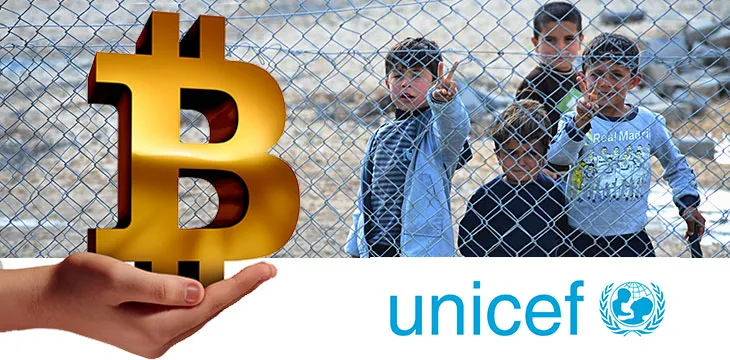|
Getting your Trinity Audio player ready...
|
Charity organizations always look to out-of-the-box methods for increasing the money they collect for their causes. One of the world’s most well-known non-profit organizations, the United Nations International Children’s Emergency Fund (UNICEF), is paving the way for unique methods. They are looking to online gamers to mine cryptocurrencies for the charity.
A few days ago, UNICEF launched a fundraising program designed to raise funds to protect Syrian children. Gamer Chaingers, as the new program is called, takes advantage of cryptocurrency mining to deliver funds to the group, foregoing the need to ask the public for donations. The novel approach is expected to run until March 31 of this year.
UNICEF created a website especially for the event. From there, users can download the mining software and review the operation instructions. So far, 326 people have downloaded the software, and just over $1,000 has been raised.
Because the group typically goes to the same donors repeatedly seeking funds, it decided to try a different tactic with Gamer Chaingers. The gaming community was chosen because computer games require powerful graphics cards to provide better rendering to the games. These same graphic cards are beneficial for faster cryptocurrency mining.
Since gamers aren’t always using their computers—they have to sleep, work, stop to eat or even study—the downtime can be used to mine coins like Ethereum. This will generate the funds UNICEF desperately needs, without the user having to be hassled with money transfers.
The one obvious drawback to this solution is the current market volatility witnessed in the cryptocurrency market. The recent fluctuations in major coins like SegWit1x (BTC) and Ethereum could produce results lower than what UNICEF anticipates receiving. However, if the analysts are correct and cryptocurrencies continue to bounce back, it could be a significant whirlwind of funds.
Founded in 1946, UNICEF is one of the most well-known and well-respected charity organizations around the world. It receives donations from both governments and private citizens, and has raised over $5 billion since its inception. It joins a very short list of non-profit charity groups to have won the Nobel Peace Prize, which it was awarded in 1965.

 09-04-2025
09-04-2025 





